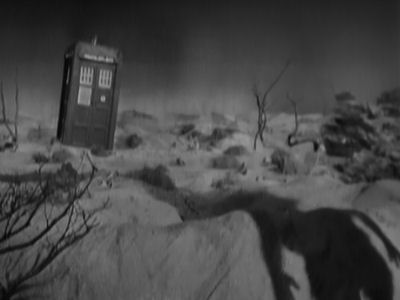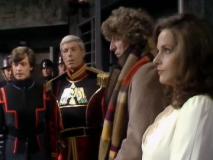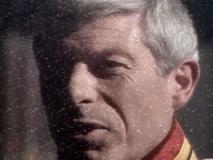BBC challenged over ownership of TARDIS
Sunday, 10 November 2013 - Reported by Marcus
 The BBC is being challenged over the ownership of the copyright of the TARDIS, by the son of the author of the first Doctor Who story, Anthony Coburn.
The BBC is being challenged over the ownership of the copyright of the TARDIS, by the son of the author of the first Doctor Who story, Anthony Coburn. Stef Coburn is claiming that his father created the TARDIS, seen in the very first episode of Doctor Who, An Unearthly Child, shown on 23 November 1963. He claims that he remembers his father getting the inspiration for the TARDIS during a walk on Wimbledon common. He believes the BBC is failing to give his father "the public recognition that should by rights always have been his due" for inventing the Tardis.
Anthony Coburn was a staff writer for the BBC when he was commissioned to produce scripts for the proposed new science fiction series. He inherited a concept for the show which had been produced by script writer Cecil Edwin Webber in which much of the structure of the programme had already been defined. In the original document the spaceship is described as something "humdrum, say, .... such as a night-watchman's shelter"
Stef Coburn's case is that any informal permission his father gave the BBC to use his work expired with his death in 1977 and the copyright of all of his ideas passed to his widow, Joan. Earlier this year she passed it on to him. He told the Independent
It is by no means my wish to deprive legions of Doctor Who fans (of whom I was never one) of any aspect of their favourite children's programme. The only ends I wish to accomplish, by whatever lawful means present themselves, involve bringing about the public recognition that should by rights always have been his due, of my father James Anthony Coburn's seminal contribution to Doctor Who, and proper lawful recompense to his surviving estate.
Coburn had demanded that the corporation either stop using the TARDIS in Doctor Who, or pay his family for its every use since his father's death. The BBC says it is looking into the complaint. A repeat run of a restored version of the very first story, An Unearthly Child, was announced in September, but then removed from schedules 'pending the resolution of issues'. The BBC have yet to confirm these issues have been resolved. This is not the first time the BBC has been involved in litigation over the TARDIS. In 1998 the London Metropolitan Police argued it should own the trade mark of blue box, objecting to the BBC using the image of the TARDIS on comics, T-shirts, videos and other merchandise. The Police force lost the case, following appeal, in 2002, and was ordered to pay £850 plus legal costs to the BBC.





















